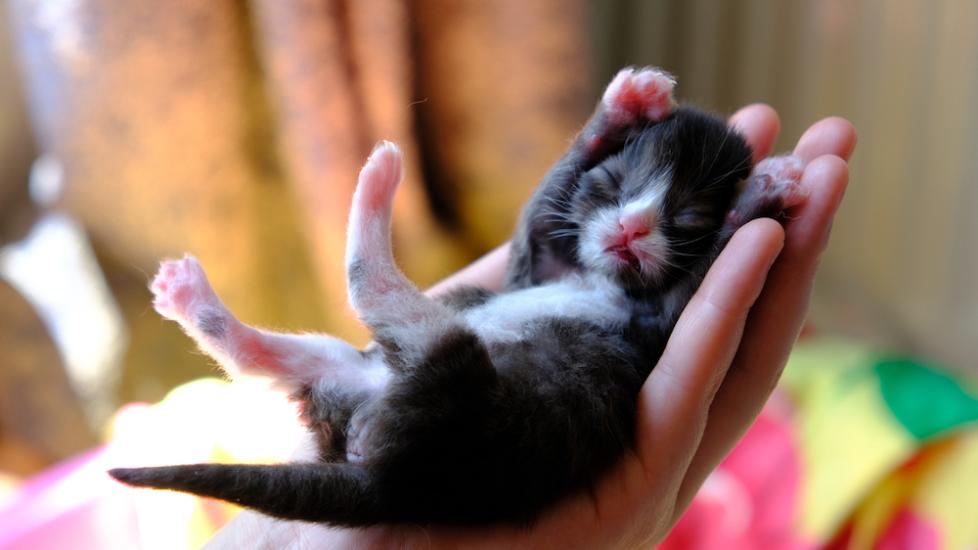 Introduction:
Introduction:
Newborn kittens are delicate creatures, and their health is a constant concern for pet owners. One of the most critical aspects to watch out for is eye infections, which can lead to serious complications if left untreated. These infections often present as a red or watery discharge from the eyes, which can progress rapidly and cause significant discomfort to these tiny felines. It’s crucial to recognize the signs early on and take prompt action to ensure your newborn kitten’s well-being.
Signs of Eye Infection in Newborns:
1. Discharge: A clear or slightly yellowish fluid may be seen coming from one or both eyes. This can crust over during sleep, causing irritation upon opening the eyelids.
2. Redness: The whites of the eyes (conjunctiva) become inflamed, resulting in a pink hue that may spread to the inner corners of the eyelids.
3. Scratching or Rubbing: Your kitten might start scratching at its face excessively due to itchiness or pain caused by the infection.
4. Pus: As the condition worsens, pus may develop, indicating a more severe bacterial infection.
5. Lethargy: Some infected kittens show reduced energy levels and seem less active than usual.
Causes of Eye Infections in Newborns:
1. Bacterial Infection: Bacteria such as Staphylococcus or Streptococcus species can infect the eyes, especially if they come into contact with an unclean environment or other sick animals.
2. Viral Infection: Feline herpesvirus (FHV) and calicivirus are common viruses known to affect a cat’s vision. They can be transmitted through direct contact with an infected animal or via aerosolized viral particles.
3. Parasites: Mites like Demodex canis or Cheyletiella yasguri have been associated with ocular inflammation in cats.
4. Genetic Predisposition: Certain breeds may inherit weak immune systems or congenital abnormalities that make them more susceptible to eye diseases.
Prevention Tips:
1. Hygiene: Keep the birthing area clean and disinfected before introducing any newborns.
2. Isolation: If you have other pets, isolate the pregnant queen and her litter until the kittens reach a safe age.
3. Regular Checkups: Schedule routine examinations with a veterinarian throughout pregnancy and after birth.
4. Nutrition: Ensure that the mother cat receives proper nutrition during gestation and lactation to support strong immunity in her offspring.
5. Monitoring: Regularly check your newborn kittens for any signs of illness, including those related to their eyesight.
Treatment Options:
If your kitten shows signs of an eye infection, immediate veterinary intervention is necessary. Treatment typically involves:
1. Antibiotics: To combat bacterial infections, oral medications or topical solutions may be prescribed.
2. Antivirals: For viral infections, antiviral drugs may be used alongside supportive care measures.
3. Medicated Eye Drops: Specialty ophthalmic drops help reduce inflammation and promote healing.
4. Supportive Care: Warm compresses, gentle cleaning of the eyes, and keeping the environment stress-free contribute to a comfortable recovery process.
Conclusion:
Eye infections in newborn kittens require swift recognition and treatment to prevent long-term damage. By being vigilant about hygiene, isolation practices, regular vet visits, and monitoring your kittens closely, you can provide the best possible care for your furry family members. Always consult with a professional veterinarian for specific advice tailored to your kitten’s needs.
